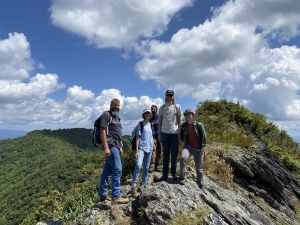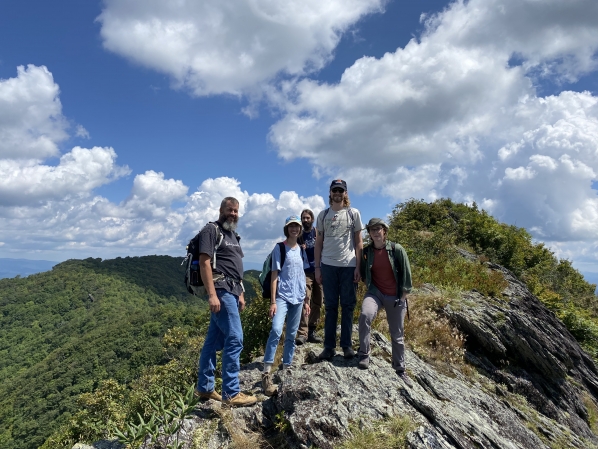Why did you become a biologist (and specifically the type of biologist you are)?
A great love of the outdoors led me towards a biology undergraduate degree. I spent a lot of time hiking and backpacking and developed a desire to be able to identify everything I discovered. Early in my studies I was infatuated with reptiles and amphibians, but as my education progressed, evolution became the most exciting discipline to me. After avoiding classes like genetics and molecular biology for my entire undergraduate degree, I finally took them during my senior year. These two courses illuminated tremendous possibilities to study evolution and ultimately shaped my future as an evolutionary geneticist.
When did you know this was your career choice (Discuss the process through which you ended up choosing this as a career.)?
My undergraduate degree was a BS in Biology with a certificate to teach high school sciences. This program allowed me to TA lab courses as an undergraduate. I was a TA for the Introduction to Zoology course as well as Comparative Vertebrate Zoology. Interacting with the professors that taught these courses and developing my teaching skills really paved the way towards my career choices. As I approached graduation, I realized teaching at the university level was more appealing to me, so I applied to graduate school and continued my studies.
Who or what is your inspiration?
Biodiversity!!! I have always loved finding and identifying organisms that I had never seen before. As my education progressed, I realized that vertebrates were just the tip of the iceberg and that life was full of diversity. Classes like mycology, entomology, and systematic botany introduced me to life outside the vertebrates and they really honed my prospective on biodiversity.
If you had to do it again, what would you be?
A bryologist maybe? Mosses, liverworts, and especially hornworts are a favorite group of plants. I think I would skip the vertebrate courses and dive right into groups that are less studied. I would also spend more time focused on microbiology; the Archean seem like a fascinating lineage that get very little attention. The tremendous potential to find new organisms and describe their biology would be exciting.
What courses do you currently teach?
I teach many classes in genetics. These include BIO2400 (Genetics), BIO2410 (Genetics Lab), BIO2700 (Human Genetics), BIO4111 (Conservation Genetics) and BIO5100 (Molecular Evolutionary Genetics and Genomics). I also love to explore the world, so I teach international field courses where students get introduced to biodiversity outside the US.
Are you planning to teach any new courses in the near future?
I do not currently have plans to develop new courses.
What do you like most about teaching?
After a year of isolating and teaching classes on zoom, I can honestly say the students are the best part of teaching. I am so excited to be back in the lecture hall this term, interacting with students and discussing exciting science. Teaching is a two-way street, the give and take of face-to-face lectures has reinvigorated me and I truly enjoy working with my students.
What is the overarching goal of your research program?
Since my arrival at Appalachian, I have refocused my research towards the rare plants of Western North Carolina. My research group uses genetics to quantify the genetic diversity found within the rare flora of our region. We use this information to assess population viability and to measure connectivity between populations. We share this data with land managers across the state so they can develop management plans to protect our states natural heritage.
What advice do you have for undergraduates/graduates pursuing degrees in biology these days?
As a young student, it is hard to know what lies ahead. Develop your work ethic and follow your interests. A career in biology can be a very rewarding. Whether you are a bench scientist, an outdoor scientist, or a mixture of both it is critical to follow your interests.

